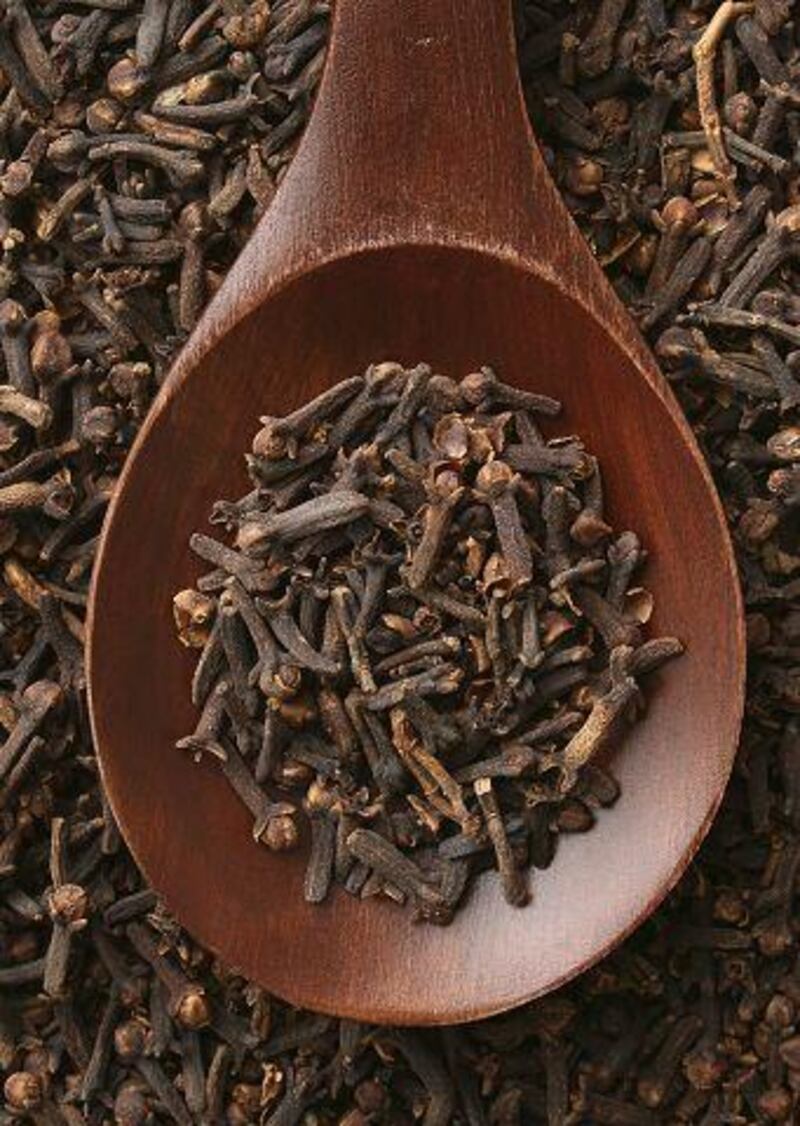Put down the pomegranate and shove aside your goji berries, for we have a new superfood in town. According to a group of Spanish researchers, the humble clove (Syzygium aromaticu) has been found to contain huge amounts of antioxidants, due to its high levels of phenolic compounds. In layman's terms, this means that the aromatic spice, which has been used in the Middle East for thousands of years, can be used to help preserve food for longer.
And with these new findings in mind, scientists hope food manufacturers will increasingly feel the push to replace synthetic antioxidants with more organic options. The study, which was published in the latest issue of the Flavour and Fragrance Journal, hailed cloves as the best natural antioxidant around. The lead researcher, Professor Juana Fernandez-Lopez, said: "Out of the five antioxidant properties tested, cloves had the highest capacity to give off hydrogen, reduced lipid peroxidation well, and was the best iron reducer.
"The results show that use of the natural oxidants occurring in spices used in the Mediterranean diet or their extracts, is a viable option for the food industry, as long as the characteristics of the food product are not affected. "These substances exhibit high antioxidant capacity, and could have beneficial effects for health." In addition to the new findings, cloves have been admired for their health benefits for centuries, being used in traditional Indian and Chinese medicine as well as for homeopathic purposes.
Health appeal to food firms Given that the UAE has a long-acknowledged problem with obesity and diabetes, the UK Food Standards Agency's (FSA) appeal to big confectionary manufacturers, whose products are available throughout the UAE, to make their treats healthier should come as welcome news. Cakes, biscuits, chocolate bars and buns are but a handful of the delights the FSA have said need less saturated fat in them, with the agency also declaring that fizzy drinks should be made with less sugar.
Appealing directly to huge international manufacturers such as Mars and Kraft (which recently took over Cadbury's) the FSA has asked that the biggest selling products have their saturated fat content reduced by 10 per cent, with smaller cakes and sweets cutting out five per cent of their saturated fat. Fizzy drinks, they say, should have four per cent less sugar in them, and should also be made available in 250ml cans (the average can is 330ml) to help reduce people's consumption. Saturated fats can increase the risk of heart disease, and carbonated drinks have been blamed for the rising obesity epidemic, as well as being linked to pancreatic cancer.
Opinion is divided as to the effectiveness of these measures, with some critics saying that the public needs more education on the hazards of sugary drinks. But the guidelines seem to be part of a larger existing trend: a week before the report was released, Pepsico pledged to both cut sugar and introduce smaller cans for its soft drinks, such as Pepsi Cola and Tropicana, as well as cutting salt and saturated fat from its food products, which include Lay's potato crisps.
Females do complain most For all the criticism women give men over their whingeing approach to "man-flu", it turns out that females are, in fact, the biggest hypochondriacs of all - but that it pays off for them in the long term. According to a report conducted by the UK's Office for National Statistics, a 2001 study into the health of 750,000 people - aged between 35 and 74 - found that more women than men were likely to report that they were ill, and were then less likely to die of their ailments.
In addition, the report also found that people in certain social groups were more likely to report that they were ill, and also more likely to die from their conditions. The groups at risk included unmarried individuals, divorcees, people living in housing associations, people without a car, the unemployed and those with no educational qualifications. The results have caused concern among doctors who believe that men are too lackadaisical in their approach to their personal health, fearing that they will leave symptoms undiagnosed until it is too late for any treatment to work appropriately.
Interestingly, a similar study carried out by Cambridge University may have proved that "man-flu" is not just a figment of the male imagination, but a genuine affliction caused by the difference in our immune systems, giving men even more reason to gripe.






